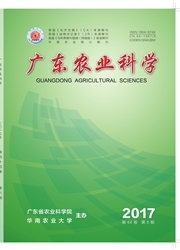

 中文摘要:
中文摘要:
研究新生代农民工的返乡务农意愿对解决当前我国农业劳动力结构性短缺问题有重要参考意义。通过建立Logistic回归模型,分析被抽样调查的陕西389位新生代农民工的返乡务农意愿及其影响因素。结果显示:被调查新生代农民工中,73.78%的人表示将一直留在城镇务工,不愿意返乡务农;新生代农民工的家庭农业收入、家乡的社会风气、家乡政府农业支持力度对其返乡务农意愿有着显著正向影响;新生代农民工对子女教育态度、家乡消费观念对其返乡务农意愿有着显著负向影响;而新生代农民工外出务工后体质变化、对务农技能掌握情况、家庭中农业劳动力人数、老人医药费负担情况、回家频率、所学技能对回乡务农帮助等因素对其返乡务农意愿无显著影响。并在此基础上提出了引导和支持新生代农民工返乡并从事现代农业生产的政策建议。
 英文摘要:
英文摘要:
Analyzing the new generation of migrant workers' intention of returning home and farming can offer important references for solving the current structural shortage of agricultural labor force problem in our country. A logistic regression model was established using the survey data of 389 new generation of migrant workers in Shaanxi for analyzing the new generation of migrant workers' intention of returning home and farming and its influence factors. Results showed that 73.78% of the new generation of migrant workers would stay town and had no willing to returning home and farming;the family' agricultural income, the hometown social climate, the hometown government agricultural support had significant positive effect on the new generation of migrant workers' intention of returning home and farming; the attitude to their children's education, the hometown people's consumption idea had significant negative impact on the new generation of migrant workers' intention of returning home and farming; and the physical changes, level attained of farming skills, the quantity of agricultural labor force in family, medical expenses burden of the old in family, the frequency of returning home, the help of learned skills to farming had no significant effect on the new generation of migrant workers' intention of returning home and farming. And on this base, some policy recommendations for leading the new generation of migrant workers returning home and engaged in modern agricultural production were put forward.
 同期刊论文项目
同期刊论文项目
 同项目期刊论文
同项目期刊论文
 期刊信息
期刊信息
